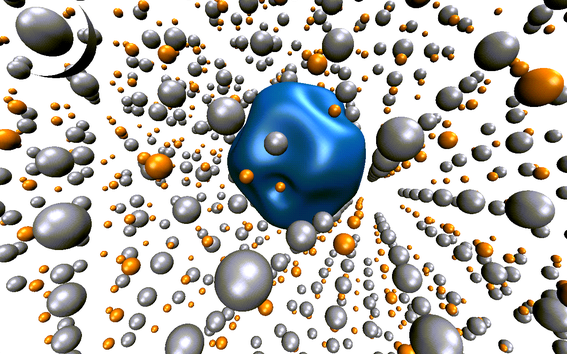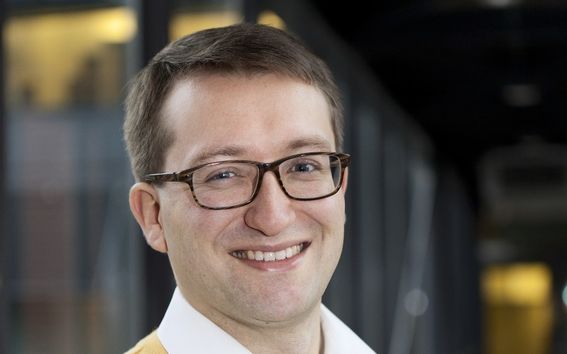Antimatter and Nuclear Engineering


Group leader
Filip Tuomisto
Research
Positron physics and defect spectroscopy
Positron annihilation spectroscopy enables the unambiguous identification and quantification of vacancy defects and their surrounding atoms in crystalline solids. For instance, in the case of semiconductor materials, this type of basic research aims at the understanding of e.g. mechanisms of electrical compensation, the origin of optical absorption and the nature of electronic transitions of photoluminescence. In the past, the group has contributed substantially to the understanding of defect and doping impurity structures both in silicon and compound semiconductors, as well as the physics of positrons in solids.
Our work in this field involves the study of defects in semiconductors, development of positron methods for the study of matter, and nuclear materials research. All the instrumentation has been designed and constructed in-house.
See review: “Defect identification in semiconductors with positron annihilation: Experiment and theory”, Rev. Mod. Phys. 85, pp. 1583 – 1631 (2013).
Reactor and radiation physics
In reactor physics, the current research interests include Monte Carlo burnup calculation methodology, diffusion coefficient generation by the Monte Carlo method and uncertainty analysis in reactor physics. Essentially all research is computational using and/or developing codes such as Serpent, MCNP and NJOY in close collaboration with VTT Technical Research Centre of Finland Ltd.
In radiation physics our interests are in the computational methods of gamma-ray spectrometry and identification. The group is the birthplace of SAMPO codes for spectrum analysis and the expert system SHAMAN for subsequent radionuclide identification and quantification. We also belong to the developers of LINSSI database for gamma-ray spectrometry and are active members of the LINSSI Users' Group.
We are active members of European Nuclear Education Network and Finnish Generation IV -project.
Facilities
We have two continuous variable-energy positron beams equipped with state-of-the-art detector systems and sample manipulation facilities and four measurement stations for fast positron spectroscopy, and a pulsed positron beam for positron lifetime measurements with low-energy positrons. All the instrumentation has been designed and constructed in-house.
Sample manipulation possibilities during positron experiments include:
- Temperature control from 10 K up to 1000 K that allows for defect charge state determination in semiconductors, in-situ annealing experiments in semiconductors and metals, and, e.g., structural analysis of phase transitions in molecular matter.
- Monochromatic sample illumination with light wavelength 400 – 2500 nm, allowing for studies of photoionization of defects in semiconductors and, e.g., structural photoresponse in polymers.
- Sample biasing, allowing for studies of near-surface Fermi level modification effects in semiconductors and positron diffusion.
Courses
The Antimatter and Nuclear Engineering group promotes a few courses and offers positions and subjects for theses.
Courses on nuclear engineering
The courses related with nuclear engineering are lectured in Finnish. For an English alternative, please contact Professor Filip Tuomisto.
Introduction to nuclear energy technology
The course is intended for students minoring in energy sciences. It is lectured every spring. The course has three main parts: current, generation II and generation III nuclear reactors, future generation IV fission reactors and fusion reactors. The contents are basics of nuclear physics and technology, nuclear fuel cycle, nuclear waste management, safety and nuclear specific issues. Fusion reactor concepts, basics of fusion physics and material issues are also covered. The course is lectured in Finnish.
Introduction to reactor physics
The course is lectured every autumn. It gives an overall view of nuclear energy, reactors and power plants and an introduction to neutron physics, nuclear reactor theory, reactor kinetics, heat removal, thermal hydraulics, fuel cycles, nuclear waste management and safety viewpoints. The mathematics and physics courses of the first two years are adequate prerequisites. The course is lectured in Finnish.
Advanced course in nuclear engineering
The course is lectured every spring and concentrates on neutron physics. The course introduces a computational chain that can be used to model nuclear reactors. The course covers transport theory, Monte Carlo method, burnup calculation (Bateman equations) and diffusion theory as well as elementary heat transfer and thermal hydraulics. Applications of the computational chain are demonstrated.
Radiation physics and safety
The subject of the course is radiation, its interactions with matter and its health effects. The emphasis is on the ionizing radiation, its risks and their mitigation. The concept of risk is studied in connection with radiation and nuclear safety. The course includes laboratory exercises on sealed sources and X-ray equipment and gives a possibility to obtain a licence to use them in research and industry. For the licence adequate knowledge of the Finnish regulations on radiation and nuclear safety is required.
Solid-state and materials physics
Members of the group also contribute in teaching courses on solid-state and materials physics.
Laboratory courses
The group actively participates in organizing and developing the laboratory courses on Engineering Physics. These courses give hands-on experience of research work that is welcome among the theoretical physics courses.
Laboratory course on engineering physics
One of the exercises on this BSc-level course is titled "Positron measurements in semiconductors". The goal of this assignment is to familiarize oneself with the equipment used in a positron
lifetime measurement, studying vacancies with positrons and the physics of vacancy defects in GaN samples.
Advanced physics laboratory
One of the exercises on this MSc-level course is titled "Semiconductor studies with positrons". The goal of this assignment is to dig deeper into semiconductor characterization utilizing positron spectroscopy.
Theses
The Antimatter and Nuclear Engineering group offers a wide range of subjects for bachelor’s theses, special assignments and master’s theses. Many of our theses are written at the organizations in this field (VTT, Fortum, STUK, TVO) or instructed by their expert personnel.
For further information, please contact Professor Filip Tuomisto.






